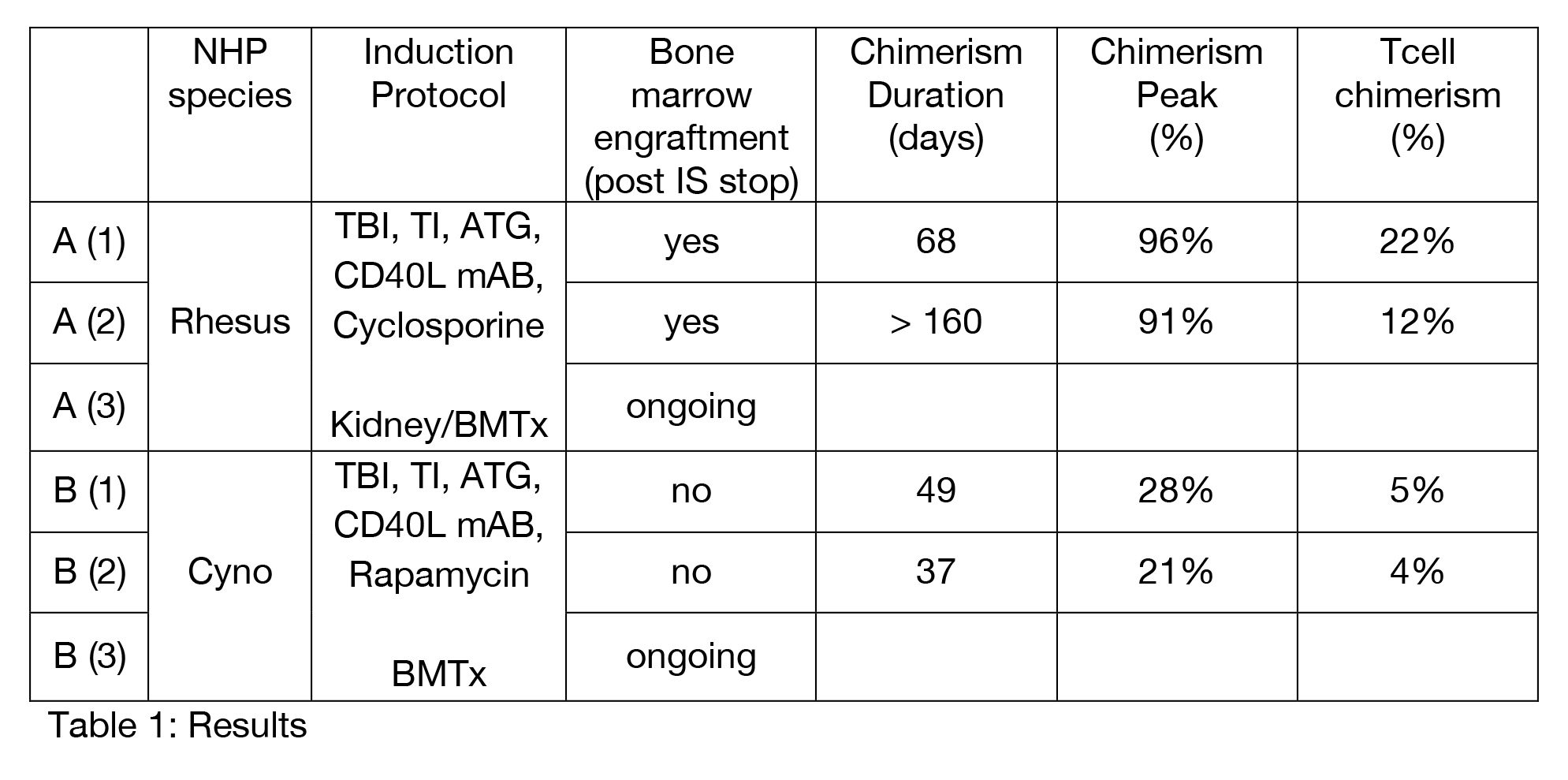Advantages of rhesus macaques in a tolerance model for combined bone marrow and kidney transplantation
Karina Bruestle1, Hiroshi Sakai1, Fanny Fredriksson1, Benjamin Piegari1, Dilrukshi Ekanayake-Alper2, Joshua Weiner1, Alina Iuga3, Shana M. Coley3, Megan Sykes1, Adam Griesemer1.
1Columbia Center for Translational Immunology, Columbia University, New York City, NY, United States; 2Institute for Comparative Medicine, Columbia University, New York City, NY, United States; 3Department of Pathology and Cell Biology, Columbia University, New York City, NY, United States
Introduction: Mixed chimerism (MC) induction via non-myeloablative conditioning and bone marrow transplantation (BMT) is a promising approach to achieve long-term kidney transplant tolerance. Prior data has demonstrated transient multilineage chimerism lasting 20-60 days in cynomolgous monkeys, with Tcell chimerism of upto 5%. The proposed induction protocol was able to yield higher and longer lasting mixed chimerism in the rhesus macaque as an operational tolerance model to solid organ transplantation.
Methods: Rhesus macaques developed multilineage peripheral blood macrochimerism starting day 5, that was high in peak percentage (≥90%) and showed Tcell chimerism ≧10%. Bone marrow engraftment was evident after immunosuppression withdrawal and persisted significantly longer compared to cynomolgous controls. One animal developed persistent multilineage chimerism ≥30% for over 6 months. During the chimeric period, recipients showed donor-specific hyporesponsiveness in MLR and Elispot. No animal developed graft-versus-host disease. Animals accepted their donor kidney graft for over 180 days.
Conclusion: While a similar induction regimen in other species has historically failed to achieve permanent chimerism, this tolerance protocol demonstrated significant findings in the rhesus macaque: higher chimerism overall, Tcell chimerism ≥10%, bone marrow engraftment after immunosuppression withdrawal and persistent macrochimerism for ≥5months. The rhesus macaques is thus a suitable model to study tolerance induction in solid organ transplantation with nonmyeloablative induction protocols.

There are no comments yet...